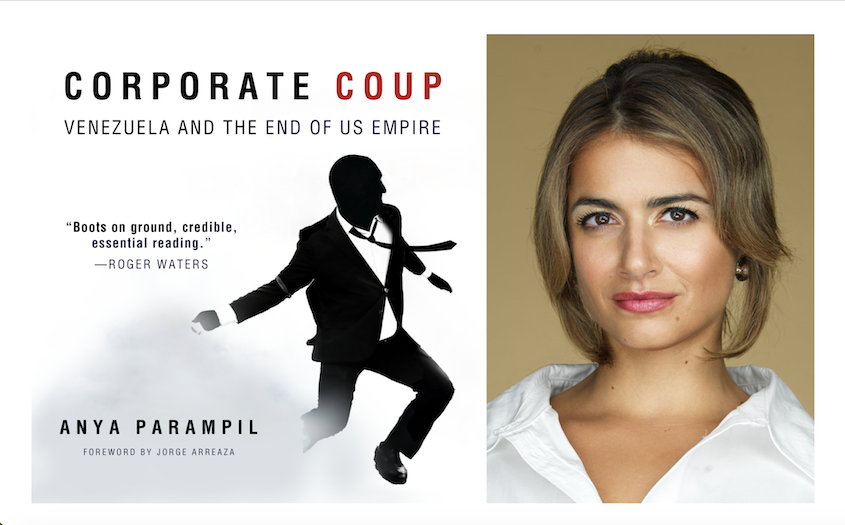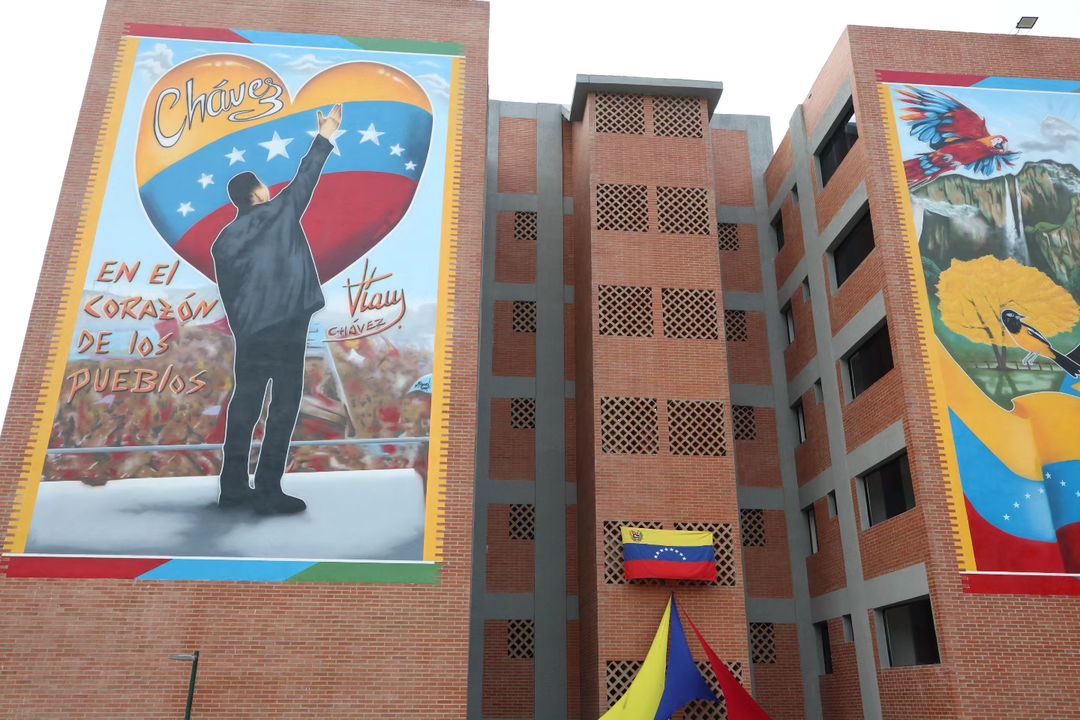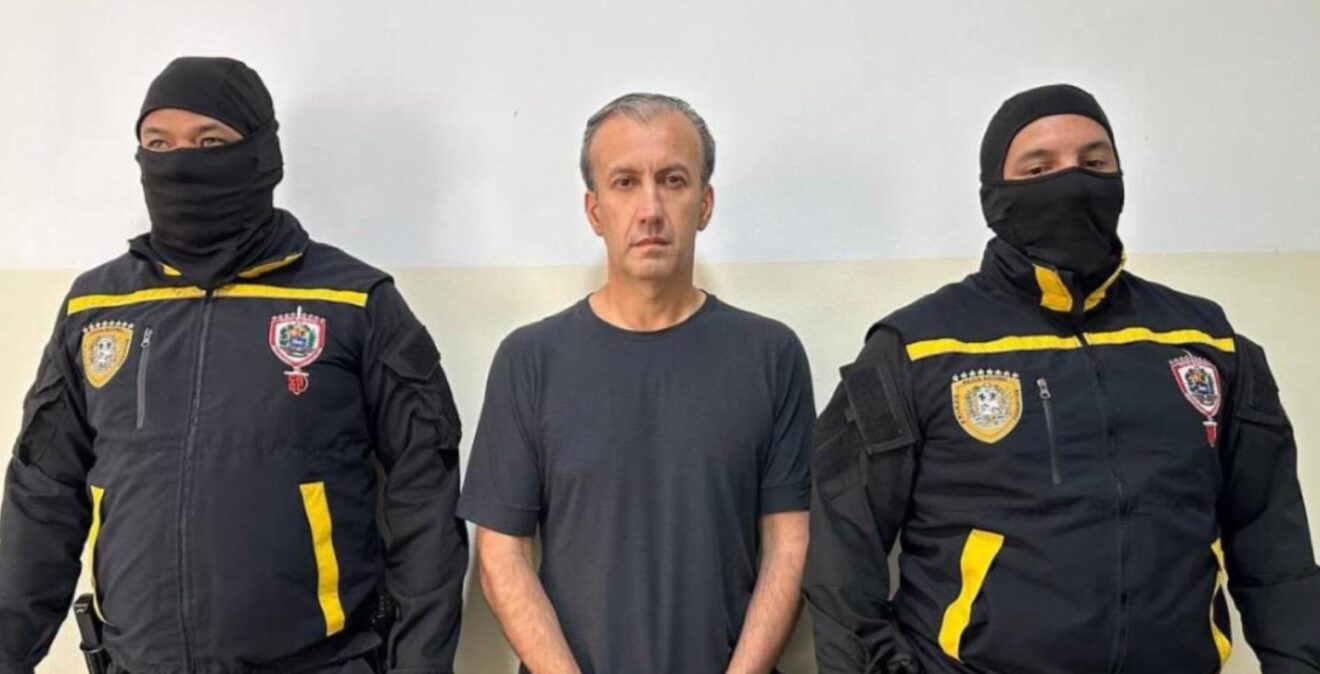 The Cayapo
The CayapoJan 24, 2024 , 3:39 pm .

(Photo: El Cayapo)
When you want anything you can. We can think very well and be great technicians, intellectuals, artists, politicians, athletes, professionals, but if building a country is not an objective, what we are will be of no use.
The great mystery of being a people begins to be cleared up with the proposal of President Maduro's five consensuses. In that skeleton of a proposal there is room for all the ideas to fill with flesh the construction of a desire of the ancestors who fought to get rid of the yoke of the invaders and design a town different from what they inherited.
In different writings we have expressed the need to have an idea that unites us, that constitutes us as a people. To be the country we dream of. On more than one occasion we have expressed that, in 500 years, despite the proposal of Rodríguez, Miranda, Bolívar, Zamora, who invite us to merge as a people, with our own decisions, independently of criteria regarding the powers of the world, it has not been possible to have an idea, an impulse, a plan, a strategy, a tactic that would lead us over time in this territory to become a people with a profile, with its own interest, a people that calls itself and not be named or called from afar.
On the contrary, the business, governing, intellectual, academic, technical, and artistic elites have only contented themselves with being vulgar imitators, lapdogs of foreign interests, to the point of proposing, without anyone forcing them, to hand over the country in exchange for the usufruct. of crumbs at different times and with various actors of that elite, which transmits the same surrendering, home-selling ideology, from generation to generation and which uses propaganda and ideological mechanisms such as churches, schools, universities, spectacles to transmit the same values to the rest of the population throughout the territory, which tells us that, from the richest to the poorest, we have the same thoughts or ideologies about what we are, what the territory is and its possible future, tied to the moorings that will always keep us in a mining present, hammocked by the vagaries of predatory capitalism, whose strings and controls are managed from outside.
Paraphrasing President Maduro, in his meeting with the Chavista deputies: it is important to be together and united in the purpose of building ourselves as a people, basing this union on the love for the territory, necessary fuel for the energy we need to invent ourselves as a people, having It is clear what our interests are and what are the interests of an opposition sector where concentrated evil, violence, the desire for revenge, of those here and abroad who cultivate the anti-country, sell-home spirit, that extremist, kneeling, colonized, sepoy opposition , with absolute dependence on Washington's orders, they never decide anything, never with their own mind on national territory.
Knowing the interests of the opponents in the service of the invader, we are obliged to connect and anchor ourselves with the great purposes. Building on a new ethic of being able to be collectively, being clear that this architecture will require the collective effort of those of us who propose to design this territory and our existence, from another artistic, ethical, political, productive conception, where we identify ourselves and name ourselves. as people with real, intra-cultural love, amalgamated with the territory to which we must belong and not the one that belongs to us, thus creating a new vision of what the territory is and what we will be with knowledge of the facts. Focusing on strengthening collective values, getting rid of the individualistic, egocentric, selfish and petty values that capitalism promotes. Thus clearing the minds and hearts of those who will build and live the future.
Those of us who assume these tasks must recognize ourselves as people at the service of a historical cause, at the service of a transcendental project that is none other than the project of the Liberator Simón Bolívar, brought to the 21st century by our beloved Commander Hugo Chávez, at the service of a higher project , of a historical cause greater than any of us, no matter how important any of us may be. We all have to see ourselves as militants of a historical cause, as soldiers of an army that defends, that talks, that experiments, that designs an idea of homeland, that vindicates us in a collective project.
In 2023, five dynamic and dialectical consensuses have emerged that today reflect a national vision of unity among Venezuelans. These five consensuses do not come from nowhere, they come from the battle of these years and to a large extent these five consensuses have emerged because society begins to recompose itself, to recover and has a direction. Venezuelan society, today, January 24, 2024, has a direction, has consensus, has a model, has a vision on which we must persevere, from now on, to find our own path, to walk on our own feet, to think with your own head and to build our country in the only way that it can be built with your own hands, with your own work, with your own sacrifice, with your own vision.
A dependent country, without vision, kneeling to the interests of foreigners and the gringo empire, will never find its own path of dignity, construction and full development of well-being and prosperity. We have never and never found our way. (Here we add) following the foreign step that always invites us to imitation, copy, belief in the strange, which subjects us to excessive adulation, refusing to activate the spirited muscles of collective invention.
UNITY AND TOGETHERNESS
The different and great cultures of the world have gone through long and painful processes, where few visionary leaders have led them to glorification, to settlement, to being a culture practiced by the elites and the majorities. Without ceasing to have these cultures the plundering character that until now the elites have decided, based on the accumulation of wealth.
All of this is due to these visionaries who educated these elites with their examples so that they understood that the only way to be great and powerful was through the unity of factions, tribes, genes, regions, States, regions, skin colors, data. religious and magical, which amalgamate people at a given moment, and in that unity are the alliances where each one gives part of themselves to win in the future and their small ambitions are superimposed by the great purposes, ideas, plans that lead them to become the cultures that they have become, in historical times determined by new ideas that, with the unitary effort of the elites of the time, become physical facts, lasting over time, together with imaginaries that make them belong. to the territory that they are going to defend with nails, viscera, ideas, plans and physical constructions. Achieving in difficult times the necessary joints to overcome difficulties successfully. All of this independent of ideologies or beliefs of each elitist group or sector.
We repeat all this truism truth as an appetizer that introduces us to the intricacies of who we have been, who we are and who we should be from now on.
Let's enter the conflict of who we have been outside of cheap ideologies, outdated nationalisms or unfulfilled desires. For 500 years the true truth of who we have been is that we have not been, because both the elites who should have been builders, shapers of people, as well as us slaves at their service... (And we use the term slave because The truth, even if it hurts, must be told with all its letters and without disguises. Although most of us do not like or dislike being told the truth and we prefer to let ourselves be carried away by the songs of sirens, of academics, intellectuals, artists, professionals. and politicians at the service of the highest foreign bidder, but we insist, the truth is that we are slaves and we will continue to be if we are not able to understand each other collectively to get out of this miserable condition to which mining capitalism has led us for more than 500 years. and plunderer.)
Once the water is clear, let's continue. In this territory initially invaded by the Europeans, both the resources and the people, those brought from outside, as well as the original ones, have been considered merchandise that produces and reproduces merchandise-wealth, which fills the coffers of elite capitalism in the world, without import its settlement, because as Marx defined it: capitalism neither has nor defends a homeland.
The elites that were formed in these areas never considered establishing themselves as such on these properties, because their ambition was to be next to their owners as peers, and their only proposed task was to plunder all types of resources without building future bases. of a country or town calling themselves, on the contrary, they were accumulating, as a result of their fears, frustrations and defects brought from beyond the seas, a hidden hatred against the territory and the inhabitants that had nothing to do with their European origin, because both Africans, the Indians, like the poor whites and their descendants, had nothing to do with their illusions of the new rich who tried to erase their Maula origins with money. On the contrary, the self-confidence of these people reminded them of the pigsties and pigsties from which they started. and those who never wanted to return, except as noble lords, to rub shoulders with their former masters.
These elites hid in their own Mantuan shell and understood that their only task was to increase ownership over the territory and the people who inhabited it. It never occurred to them to think and even less to think about the design of a country in which to found a culture different from the one from which they left, and to understand that it was from there where they could relate face to face with their former masters, because they had a territory , a culture, an idea, a plan to be power, amalgamating as a people and fulfilling the maxims that made the different cultures that settled and became powerful great. These ordinary people, of low intellect, advised by ignorant and obscurantist priests, loaded with many vices, were content to be bosses of estates who lost them in games of dice or ajiley. These elites who traded their daughters for positions in the Crown were no more than the same port gamblers and ill-gotten medicine cabinets.
In 300 years they could never think, they never came up with an idea to be a people, they only miserated the territory by plundering it and handing it over to those who wanted to pay and in their depravity. They debased the people with whom they could well have built a strong and culturally formed people for great causes, as has been demonstrated throughout history, by leaving the controls of these perverted elites.
This explains to us that projects such as the Colombeia of Francisco de Miranda, supported by Simón Bolívar, formed under the philosophical precepts of Simón Narciso Rodríguez, failed painfully and resoundingly until Ezequiel Zamora, but not before sacrificing thousands of lives in the bonfire of the possible. of slaves and young Mantuans who joined the new ideas, which were heard and became reality throughout Europe.
From then on, this territory and its people continued to suffer from the same elites revamped by generals who earned their fortunes by stealing territory and goods assigned to soldiers after the war of independence.
Already at the end of the 19th century, this territory suffered a new silent invasion, carried out by the representatives of the new empire that Simón Bolívar had announced as the one destined to plague this continent with hunger and misery, we add: and to the world, with the casual consent of the elites who once again only settled for crumbs. All of their miserable behavior developed throughout the 20th century, absorbing the new looting and slum culture of the oil companies, which was once again transmitted to us slaves.
Later, the governments and elites of academics, intellectuals, religious women, artists, professionals and politicians that followed only lent themselves to maintaining the cultural ordinariness of the looting oil companies. Once again, the elites without ideas of their own, with shameless mockery of what we were, repeating the same story that foreign is the best, imposing projects or plans that only benefited local and foreign scammers and usually murdering or imprisoning anyone who were opposed or denounced the looting action of the dominant companies. The exceptions even supported the idea of washing blood by bringing Germans to these lands, overcoming culture by importing educators who taught us how to behave, and even poet imitators held dinners uncovering cans that contained Parisian air, in Sabana Grande restaurants, to maintain a Parisian atmosphere of authentic bohemian. This was carried out by a court that did not differentiate between right or left in the so-called Eastern Republic.
This lasted until Chávez came to power of the State. From now on, for the first time, to the slaves and sectors of the elites who did not agree with the looting and the surrendering and cowardly behavior of the traditional elites, we are proposed a country plan into which we must put our brains to think about it, to design it. , and the body to build it, to experience it. But that is not possible without going through the tormented process of discovering ourselves and healing the wounds inflicted in 500 years of despising ourselves.
This is the first consensus, as we understand it, a bridge built for those of us who, of our own free will, even when we do not share the same ideas, have decided to establish ourselves in this territory, whether we are Chavistas or the opposition. To cross from apathy and vulgar surrender to the wonderful invention of a country by those united in dialectical contradiction who in the end will inherit it together, and these, in difficult moments, will find it easy to defend what was built together. Because they will have a history, a common root, and never again in this territory will the traitors have the power to sell it.
https://misionverdad.com/chavismo/los-cinco-consensos



















